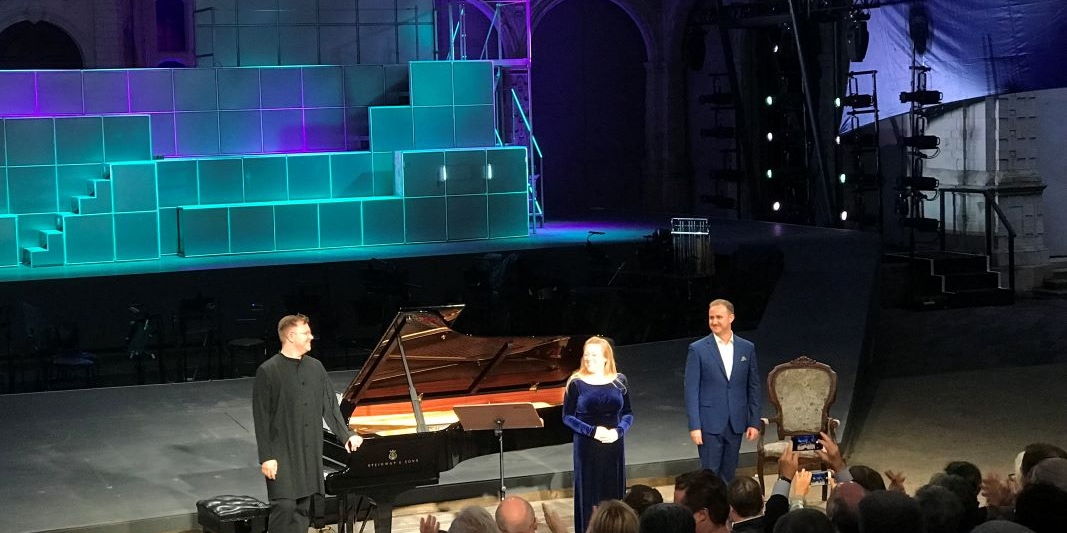At the centre of Opera Holland Park’s season each year now is a charming and absorbing three-concert interlude that explores the relationship between opera and song repertory riffing off the selection of operas performed in the current season. The second event took its point of departure from Puccini, showcasing some of his art songs, mainly from early on his career before he devoted himself full-time to opera. These were interspersed with songs by Debussy, Schoenberg, Richard Strauss and Gershwin so as to give some indication of the radical changes and contrasts in art song composition where the focus is on the relationship between life, art, and love.
As you might expect, the Puccini songs were mainly anticipations or refractions of material we are familiar with from the operas. There were echoes and refractions of La Bohème, Tosca and Butterfly in the songs written contemporaneously to those works. Quite apart from the thematic resemblances these songs had the instantly recognisable long-breathed melodies we associate with this composer together with economical but dramatically appropriate underscore and elaboration in the piano part. Perhaps the most notable was a late song, ‘Morire?’ More reflective and wistful in manner than the others, it was later inserted into one of the versions of ‘La Rondine’ and acts as a perfect distillation of Puccini’s mature outlook. Is the good life to be seen as a matter of quiet respectable simple virtue or the restless pursuit of new dreams and ambitions? A divide which lies at the heart of the dilemmas faced by the so many of the characters in Puccini’s operas.
All these songs were sung, equally divided, by Sophie Bevan and Julien Van Mellaerts accompanied by Dylan Perez at the piano. On a cool unseasonal evening things took a little while to warm up; but these accomplished performers, equally at home in the worlds of opera and song, and conscious of the adjustments needed between the two, soon leant in (sometimes literally!) to the pangs and pleasures of love on a summer evening.
The other selections showcased some intriguing and charming repertoire, usually little heard. Two particular highlights stood out for me. Debussy’s setting of Baudelaire’s ‘Receuillement’ was sung with great refinement and sense of mystery by Bevan with an exquisitely floated top note. Van Mellaerts matched that with a stylish and evocative performance of ‘Traum durch die Dämmerung’, drawing us into the twilight atmosphere with appropriately hushed tone. This is a welcome reminder of how many wonderful Strauss songs there are, only a fraction of which receive regular outings.
A selection of Schoenberg’s cabaret songs shone an unexpectedly louche light on this most rigorous of composers, and both performers were fully alive to the dramatic possibilities these settings offered. The final sequence of Gershwin numbers was slightly surprising but a welcome reminder that the composer of ‘Turandot’ was still Gershwin’s contemporary. These songs were sung with great swagger, empathy and obvious pleasure and it was also good to be able to hear Dylan Perez’ keyboard skills to independent advantage in the substantial piano parts.
A retiring collection in aid of bowel cancer reminded us of sober realities and the fact that Bevan herself was – remarkably – returning after gruelling treatment for this condition. That said, this was a delightful evening all-in-all, that explored rarer areas of the song library while also delivering a lot of (mostly) innocent pleasure.

